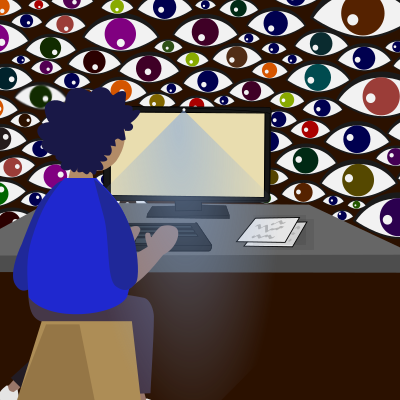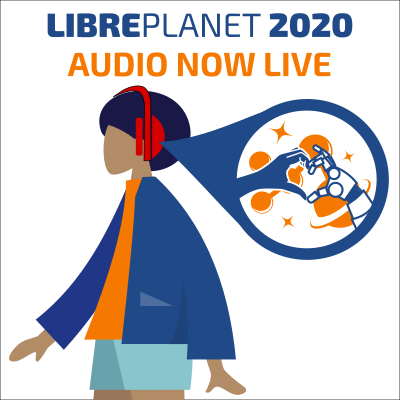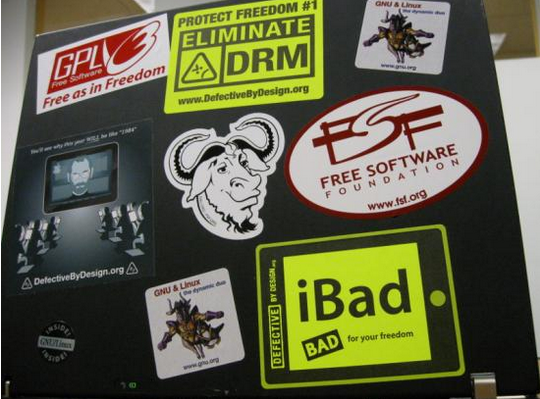Remote education does not require giving up rights to freedom and privacy
jeudi 14 mai 2020 à 23:30
As countries around the world are beginning their long and slow recovery from the coronavirus, schools and universities may have to continue their struggle to give their students a quality education while using remote communication services until the end of the year. With the need to continue classes and exams, school administrators have ended up relying on proprietary conference tools like Zoom to stay connected, and are unfortunately turning to contracting proctoring businesses with names like ProctorU, Proctorio, and Examity to monitor testing and exams.
The increased use of proprietary test-administering software is a dangerous development, both because of the software's proprietary nature, and because of its inherent purpose of exposing a student's, or in some cases a family's, data to the proctor. In schemes like these, the user ends up sacrificing both personal information and biometric data. Because the software is proprietary, there's no possibility of understanding how it works -- besides leaking personal data, it could also create security concerns or deliver bad quality tests (and results). Requiring students to cede control over their entire computer to a test proctoring company is fundamentally unjust. Worse, we cannot be sure that any of these nonfree software dependencies and their accompanying surveillance techniques will be rolled back after social distancing guidelines are no longer enforced.
It is important that decisions made in the education sector are first and foremost ethically motivated. Here at the Free Software Foundation (FSF), we have started a free communications working group. Initiatives include a remote communication email list, as well as a collaborative resource page for documenting and sharing free communication tools to help spread awareness of the ethical choices that can be made. We have also been assisting educational professionals in offering their classes online using only free software. And we have been reading many stories about activism in education from the larger community, and want to share those with you. They have inspired and motivated us. We need more people like this around the world to be vocal and critical about infringements on user freedom in the area of remote learning.
Students revolt against online proctoring
As educational institutions are scrambling to offer remote learning, online proctoring companies will likely be used well into the fall. These businesses require students to identify themselves with valid ID, and then give consent to access their browser history. Of course, the "consent" is hardly meaningful, since the student is not given the option to take their test without monitoring, so this means that they either submit to monitoring or flunk their exam.
The students are made to give a tour of their bedroom, desk, and anything the proctor demands, in order to establish a "cheat-safe" environment. The students are also forced to waive their rights so the company can record their webcams and microphones, the student's keystrokes, screen, mouse movements, and even facial expressions.
Students are also forced to consent to the organization's right to retain much of what they gather from students’ computers and bedrooms. The Daily Mail reports that "Examity's fine print notes that students handed over their data 'at their own risk' because 'no data protection procedures are entirely infallible.'" Reports have centered around added stress for the students and inequality issues, as well as (naturally) privacy concerns. Cory Doctorow highlighted the issue that the software, by design, allows the organization to hijack the student's hardware, leaving it outside their control, even after the exam is finished, or when the user wants it to stop.
But students in Australia took matters into their own hands, forcing institutions and global media to recognize the issue at hand. Thirteen groups from the Australian National University (ANU) wrote an open letter calling for the university to find an alternative approach that is acceptable for all students. And once the ANU open letter gained some traction in media, other Australian student groups followed their lead. The Washington Post reports that a faculty group in California also recognized that the privacy and digital rights of their students could not be sacrificed for the purpose of the "expediency of a take-home final exam." In the Netherlands, students of the University of Tilburg started a petition against the use of proctoring software, which is currently signed almost 5,000 times.
Free conferencing video implementations for classes
We have seen many reports on the dangers of using proprietary conferencing tools like Zoom recently. Zoom has gotten enough negative attention that New York City banned Zoom usage by schools, sadly in favor of the equally dangerous nonfree Microsoft Teams. Now, the recently launched Facebook Messenger Rooms service is also receiving its fair share of criticism. But there is hope yet, as some governments and institutions are expressing concerns and are actively looking to preserve people's freedom.
In Italy, WeSchool, an organization dedicated to the digitization of Italian schools, decided to opt for Jitsi over proprietary tools like Zoom to help teachers bring their classes online. We don't know the full extent of their commitment to freedom, but their effort to provide a platform for teachers aiming to respect the student's freedom, now that videoconferencing is such an significant part of education, is laudable. Nearly two million students connect, collaborate, and learn via video with the help of this organization.
And in France, a temporary platform has been built by the French government offering teachers and employees of the French Ministry of National Education access to free software applications like Etherpad, Nextcloud, and Discourse, tools that were also on our recommendation list for free software tools to help us get through social distancing.
In San Antonio de Benageber, near Valencia, Spain, one free software advocate made a major difference in his community. Javier Sepulveda was informed by his children's school that they intended to continue teaching weekly lessons, using proprietary videoconferencing software. Realizing this was not an isolated decision affecting only his children, Javier turned the school's choice towards free software instead.
After convincing the teachers, he set up a Jitsi Meet instance on a virtual private server (VPS) with enough resources to be able to offer this server to the school as well. He also continues to work with the local English school, single-handedly mitigating a spread of proprietary software in his community. Together with the local GNU/Linux group, he then proceeded to set up another server, so they could offer it publicly.
Advocacy matters
It's logical to seek remote connections during this time, but let's not forget that businesses are filling their pockets because of decisions made in urgency. It is wrong to open up students' personal information to proprietary software companies, and to require students to use a specific company's proprietary products in order to get credit. As Javier puts it: "We need to make decisions based on the welfare of the children." It is young people's futures that are at stake, and the above examples show that advocacy matters. Small successes are what we need to make a difference, and to give others the confidence to take a stand.
Now is not the time to accept just any decision because of the unique positions we have been placed in. We should stand up, and continue to fight for our rights and lay bare the issues and solutions for organizations struggling to make the right decisions. You can support such efforts by sharing your knowledge, giving feedback to institutions that are making decisions (right or wrong), donating to the FSF and other organizations fighting for freedom, and speaking out publicly about your successes. If you have a success story to share, you can share it on the remote communication email list, and we would be happy to help your story be heard.
Illustration Copyright © 2020, Free Software Foundation, Inc., by Zoë Kooyman, Licensed under Creative Commons Attribution 4.0 International license.

